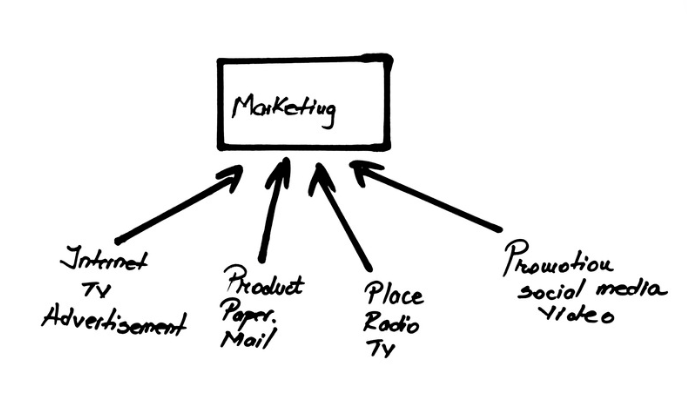
Maximize Event Attendance with Proven SEO Strategies
BlogSEO for Events: Because Shouting Into the Void Isn’t a Strategy Ever tried promoting an event and felt like you’re yelling into a crowded room where everyone’s wearing noise-canceling headphones? Yeah, we’ve been there too. Whether you’re organizing a local art fair, a tech conference, or a pop-up dinner, getting eyes on your event is half the battle. That’s where SEO swoops in like a superhero with a spreadsheet (not the most glamorous sidekick, but hey, it gets the job done). At Sitelinx Organic SEO Agency in Los Angeles, we’ve spent years perfecting the art of making events visible online. And trust us—there’s more to it than slapping a Facebook event together and praying to the algorithm gods. Let’s break down how SEO can turn your event from “wait, that happened?” to “sold out in 24 hours.” Why SEO Matters for Events (Spoiler: It’s Not Just About Keywords) Let’s get real: SEO isn’t just for e-commerce sites or blogs. Events are time-sensitive, competitive, and often hyper-local. If your target audience can’t find your event page, you’re basically hosting a party for your pet goldfish. Here’s the kicker: SEO for events isn’t a one-size-fits-all strategy. A music festival needs different tactics than a B2B conference. But the core principles? Those stay the same. Local SEO: Your Secret Weapon for Filling Seats If your event is happening in a physical location (and not in the Metaverse… yet), Local SEO is your best friend. Think about it: when someone Googles “best food festival near me” or “Los Angeles tech meetups,” you want your event to pop up like that one enthusiastic friend who always knows the hot spots. How do we make that happen? Optimize for location-based keywords: Include city names, neighborhoods, or landmarks. Claim and polish your Google Business Profile: AKA the MVP of local SEO. Update hours, add photos, and beg for those Google Business reviews (politely, of course). Leverage local directories and partnerships: Sites like Eventbrite, Meetup, or even local newspapers. Pro tip: If this sounds exhausting, that’s because it is. But guess what? Sitelinx offers local SEO services that handle the heavy lifting. We’ll make sure your event doesn’t get lost in the digital noise. Technical SEO Services: The Boring (But Essential) Stuff Okay, let’s talk about the unsexy side of SEO. Technical SEO is like flossing—nobody wants to do it, but ignoring it leads to bigger problems. For events, this means: Mobile optimization: Because nobody’s buying tickets on a desktop in 2024. Fast load times: If your site takes longer to load than a microwave burrito, you’re losing attendees. Structured data markup: Help Google understand your event dates, locations, and ticket info. And if your site runs on WordPress? Double-check that your plugins are updated, your URLs are clean, and your images aren’t hogging bandwidth. (Psst—our WordPress SEO services can automate 90% of this. Just saying.) Building Buzz: SEO Meets Social Proof Ever clicked on a search result just because it had a ton of positive reviews? That’s social proof in action. For events, Google Business reviews are golden. Encourage attendees to leave feedback post-event—it boosts future SEO and builds credibility. But here’s a hot take: SEO and social media aren’t rivals. They’re teammates. Share your event page on Instagram, TikTok, or LinkedIn, and watch those backlinks roll in. Just don’t forget to: Use trackable UTM parameters. Embed keywords in your social posts (subtly, though—no one likes a hashtag hoarder). Choosing the Right SEO Partner: Because DIY Isn’t Always Cute Look, we get it. Hiring an SEO company feels like handing over the keys to your car. But here’s the truth: the best SEO companies for small business (like yours) don’t just tweak meta tags—they become an extension of your team. At Sitelinx, we’re not just another SEO agency. We’re a bunch of nerds who geek out over keyword trends, site audits, and turning “meh” traffic into “holy cow, we need a bigger venue!” results. Here’s what sets us apart: Hyper-local expertise: We’re based in L.A., so we know the market inside-out. Transparent reporting: No jargon, just clear metrics. A mix of creativity and tech: Our SEO specialists and marketing consultants work together like peanut butter and jelly. Still on the fence? Ask yourself: Would you rather spend hours drowning in Google Analytics or actually planning your event? Yeah, thought so. FAQ: Your SEO Questions, Answered 1. “How long does SEO take to work for an event?” It depends. If your event is next week, you’re better off buying ads. But for events 3–6 months out, SEO can drive steady, organic traffic that converts. Start early—your future sold-out self will thank you. 2. “Can I handle SEO myself?” Sure, if you enjoy deciphering algorithm updates in your spare time. But for most busy organizers, partnering with an SEO specialist saves time, stress, and costly mistakes. 3. “Do I really need a Google Business Profile for a one-time event?” Yes. It’s free, it boosts local visibility, and it’s a magnet for reviews. Set it up, optimize it, and let it work its magic. The Bottom Line: SEO Is Your Event’s Best Wingman Let’s face it: organizing an event is chaotic enough without worrying whether anyone will show up. SEO isn’t a magic wand, but it’s the closest thing we’ve got. From technical SEO services to website management, the right strategy turns “Why isn’t this working?!” into “Wait, how did we hit capacity so fast?!” And hey, if you’re drowning in spreadsheets or just want to hand this off to pros, Sitelinx Organic SEO Agency is here to help. We’re based in Los Angeles, but we’ll make your event the talk of the town—or the internet. Ready to stop shouting into the void? Let’s chat. Table: Traditional Marketing vs. SEO for Events Aspect Traditional Marketing SEO for Events Cost High (print ads, billboards) Cost-effective long-term Targeting Broad, less precise Hyper-local + intent-driven Lifespan Short-term (weeks) Builds momentum over months Measurability Fuzzy metrics Clear, trackable data Best For Immediate awareness

Top Web SEO Companies: Elevate Your Online Presence with Sitelinx
BlogWhy Your Business Needs an SEO Company (And How to Choose the Right One) Let’s cut to the chase: if your website isn’t showing up on Google’s first page, does it even exist? (Okay, that’s a bit dramatic, but you get the idea.) We’ve all been there—staring at analytics that look like hieroglyphics, wondering why our “amazing content” isn’t getting traffic. That’s where SEO companies come in. And hey, since we’re based in Los Angeles ourselves (cough Sitelinx Organic SEO Agency cough), we’ve seen firsthand how the right strategy can turn a digital ghost town into Grand Central Station. But with so many agencies claiming to be the “best SEO company,” how do you separate the pros from the… well, let’s just say “overpromisers”? Grab a coffee, and let’s break it down. What Even Is SEO in 2024? (Spoiler: It’s Not Just Keywords) SEO isn’t just about stuffing keywords like a Thanksgiving turkey anymore. Modern SEO is like a three-legged stool: Technical SEO services: Fixing broken links, speeding up your site, and making Google’s bots love you. Content strategy: Creating stuff people actually want to read (not just robot-friendly jargon). Local SEO: Because if you’re a brick-and-mortar shop in LA, you’d better show up when someone Googles “best tacos near me.” And here’s the kicker: 90% of clicks go to the first page of Google. So yeah, you need this. Why Hire an SEO Agency? (Unless You’re a Masochist) Look, we get it—DIY SEO sounds tempting. How hard could it be? Then you’re 12 hours deep into a YouTube tutorial on schema markup, questioning your life choices. An SEO company does the heavy lifting so you can focus on, you know, running your business. Here’s what the best SEO companies for small business actually deliver: Time savings: No more Googling “what’s a meta tag?” at 2 a.m. Expertise: SEO specialists who eat algorithm updates for breakfast. Results: Real traffic, real leads, real growth. FYI, agencies like ours (Sitelinx, in case you forgot) also handle website management and WordPress SEO services—because nobody wants their site crashing during a Black Friday sale. “But How Do I Pick the Right SEO Agency?” (Glad You Asked) Not all SEO agencies are created equal. Some are wizards; others are just waving a wand and hoping you don’t notice. Here’s our cheat sheet: Red Flags to Avoid Promises #1 rankings in 24 hours: Unless they’ve got a crystal ball, run. No clear strategy: If they can’t explain “how,” they don’t know “how.” Zero focus on Local SEO: Crucial for small businesses! Green Flags to Embrace Transparent reporting: You should know where your money’s going. Holistic approach: Mixing technical SEO services with content and Google Business reviews optimization. Experience in your niche: A bakery’s SEO needs ≠ a law firm’s. Oh, and if you’re on WordPress? Prioritize agencies that offer WordPress SEO services. Plugins like Yoast are great, but they’re no substitute for human expertise. SEO Services Decoded (No Jargon, We Promise) Let’s demystify what an SEO specialist actually does: Service What It Means Why It Matters Local SEO Optimizing for “near me” searches and Google Maps. Drives foot traffic to your store. Technical SEO Services Fixing site speed, mobile-friendliness, errors. Makes Google and users happy. Content Strategy Blogs, guides, and videos that answer real questions. Builds authority and keeps visitors hooked. Google Business Reviews Management Encouraging happy customers to leave reviews. Boosts local rankings and trust. And yes, we do all of this at Sitelinx—along with marketing consultant support to align SEO with your bigger goals. WordPress Users, Listen Up: Your Site Needs Love Too If your site runs on WordPress, you’re already ahead of the game (high five!). But here’s the thing: WordPress SEO services aren’t just about installing Yoast and calling it a day. You need: Customized plugins: Out-of-the-box tools won’t cut it for unique needs. Database optimization: Stop your site from slowing down as it grows. Security updates: Because getting hacked is not a traffic strategy. We’ve lost count of how many WordPress sites we’ve rescued from the “too slow to rank” graveyard. Don’t be one of them. Local SEO: Your Secret Weapon for Dominating LA Here’s a hot take: Local SEO is the unsung hero for small businesses. Imagine someone searching “best SEO company Los Angeles” and actually finding you. That’s the power of: Optimized Google Business profiles. Localized keywords (e.g., “SEO agency near Hollywood”). Reviews that scream “these folks know their stuff.” At Sitelinx, we’ve helped everything from LA coffee shops to law firms crush their local search game. Because why compete globally when you can own your backyard? 3 Burning Questions About SEO Companies (Answered) “How long until I see results?” IMO, anyone who guarantees under 3 months is lying. SEO is a marathon—usually 4–6 months for traction. But hey, good things come to those who wait (and hire the right agency). “Do I need technical SEO services?” Only if you want your site to load faster than a sloth on melatonin. Spoiler: You do. “What’s the #1 mistake businesses make with SEO?” Trying to do it all themselves. Unless you’re an SEO specialist, outsource this. Ready to Stop Guessing and Start Growing? Let’s face it: SEO isn’t magic, but it’s pretty close when done right. Whether you need technical SEO services, WordPress tweaks, or a full-blown local SEO overhaul, the right agency (hi, Sitelinx) can make it happen. So, why keep shouting into the void? Let’s turn your website into a lead-generating machine. Drop us a line—we’re based in LA, but we work with businesses everywhere. And hey, no judgment if you’re still using Comic Sans. (Okay, maybe a little judgment.) TL;DR: Hire an SEO company that cares about your goals as much as you do. Hint: We’re right here. 😉

Ultimate Guide to Starting a Fencing Company in 2025: Tips & Strategies
How ToHow to Start a Fencing Company (Without Stabbing Yourself in the Foot) So, you’ve decided to start a fencing company. Nice! Whether you’re a seasoned contractor looking to branch out or a DIY warrior ready to turn your backyard hobby into a business, we’re here to help you nail this. Starting a fencing biz isn’t just about swinging hammers and digging post holes—though there’s plenty of that. It’s also about strategy, branding, and not accidentally becoming the neighborhood’s most infamous yard-art installer. Let’s break it down step by step. Step 1: Know Your Market (Or Risk Building Fences to Nowhere) Before you buy a single plank, figure out who needs fences in your area. Spoiler: Everyone thinks they need a fence until they see the quote. Do your homework: Research Like a Detective Local demand: Check zoning laws, neighborhood trends, and seasonal needs (e.g., pool fencing in summer). Competition: How many “Bob’s Fencing & More” ads pop up on Google? What gaps can you fill? Pricing: Charge too much, and you’ll scare folks off. Charge too little, and you’ll work yourself into the ground. Pro tip: Add 15% to your initial estimate—trust us, you’ll need it. Pick Your Fencing Flavor Wood? Vinyl? Chain-link? Or go niche with eco-friendly bamboo (because someone’s gotta cater to the yoga studio crowd). Specializing helps you stand out. For example, we know a contractor in LA who dominates the “luxury privacy fence” market. How? Local SEO, baby. They partnered with Sitelinx Organic SEO Agency to crush local search rankings. FYI, if you’re in LA, these folks are the best SEO company for small businesses. Just saying. Step 2: Legal Stuff (The “Boring but Critical” Section) Let’s rip this Band-Aid off fast: Licenses: Most states require a contractor’s license. Check your local requirements unless you enjoy courtroom drama. Insurance: General liability + workers’ comp. Because “Oops, I smashed your client’s prized gnome” isn’t a viable business model. Business Structure: LLCs are popular for liability protection. Talk to a lawyer—not your cousin who “watched a TikTok about it.” Step 3: Build a Website That Doesn’t Look Like a 2005 Geocities Page Your website is your digital storefront. Make it count. WordPress Is Your Friend (Mostly) We love WordPress for its flexibility. It’s like Legos for websites—easy to customize, even if you’re not a coding wizard. But here’s the kicker: A pretty site means nothing if Google can’t find it. That’s where WordPress SEO services come in. Tools like Yoast SEO help, but partnering with an SEO specialist (like our friends at Sitelinx) ensures your site doesn’t get lost in the internet void. Google Business Profile: Your New Bestie Claim your profile, add photos of your work, and beg—er, politely ask—for Google Business reviews. A 4.8-star rating screams credibility. And if managing this feels overwhelming, Sitelinx Organic SEO Agency offers technical SEO services to keep your profile sharp. Step 4: Market Like You Mean It (Because “Build It and They Will Come” Is a Lie) Time to hustle. Here’s how: Local SEO: The Secret Sauce Optimize your site for phrases like “fencing company in [Your City].” Use location pages, blog about local trends (“Why Phoenix Homeowners Love Iron Fences”), and get listed in directories. Local SEO is how you outrank Bob’s Fencing. Social Media: Show Off Those Fence Selfies Post before/after shots, share client testimonials, and maybe even a blooper reel (because who doesn’t love watching someone trip over a post hole digger?). Use hashtags like #FenceGoals or #NotJustForDogs. Old-School Tricks Still Work Yard signs at job sites. Flyers at hardware stores. Partner with landscapers or pool installers. Step 5: Don’t Ignore the Backend (Unless You Enjoy Chaos) Pricing: Math Is Hard, but Necessary Here’s a quick formula: Material Cost + Labor (pay yourself too!) + 20% Profit Margin = Your Price If math isn’t your thing, hire a marketing consultant to help. Tools of the Trade Post hole diggers (manual or auger). Levels, saws, and a lot of screws. A reliable truck. Pro tip: Avoid the “$500 Craigslist special” unless you enjoy hitchhiking. Step 6: Scale Without Losing Your Mind Hire Help (Or Go Full Zombie Mode) Start with subcontractors, then hire full-time once you’re booked solid. Train them well—your reputation is on the line. Keep Clients Coming Back Follow up post-installation. Offer maintenance packages or discounts for referrals. A simple “How’s your fence holding up?” email works wonders. FAQ: Your Burning Questions, Answered Q: How much does it cost to start a fencing company? A: Roughly $10k–$50k for licenses, insurance, tools, and marketing. Skip the fancy office—start from your garage. Q: Do I need a contractor’s license? A: In most states, yes. Check local laws or risk becoming besties with a judge. Q: How do I compete with established companies? A: Local SEO, niche services, and stellar reviews. Or, team up with the best SEO companies for small business (cough Sitelinx cough) to level the playing field. Final Thought: Fencing Is More Than Posts and Panels Starting a fencing company is equal parts sweat, strategy, and stubbornness. Build a solid foundation, invest in website management and SEO services, and don’t forget to laugh when things go sideways (they will). And hey, if you’re in LA and want to skip the trial-and-error phase, give Sitelinx Organic SEO Agency a shout. They’ll handle the digital heavy lifting so you can focus on what you do best—building fences that make neighbors jealous. 😉 Now go forth and conquer. And maybe buy a better pair of work gloves.

Ultimate Guide to Starting a Successful Roofing Company in 2025
How ToHow to Start a Roofing Company (Without Falling Off the Ladder) Hey there, future roofing mogul! Thinking about trading your 9-to-5 for a life of shingles, ladders, and finally being your own boss? Let’s hammer out the details together. Starting a roofing company isn’t just about nailing down contracts—it’s about building a business that stands strong against storms, competitors, and Google’s ever-changing algorithms. (Yep, we’re looking at you, Local SEO.) At Sitelinx Organic SEO Agency here in Los Angeles, we’ve helped plenty of tradespeople like you turn their hustle into a legit empire. And trust us—if you skip the digital groundwork, you’ll be leaving money on the table (or worse, letting it slide right off the roof). Let’s break this down step by step. Laying the Foundation: Business Basics First things first: you need a solid business plan. Not the 50-page corporate snoozefest, but a clear roadmap that answers: What services will you specialize in? (Residential? Commercial? Thatched roofs for medieval enthusiasts? Hey, niche markets exist.) Who’s your competition, and how will you outshine them? What’s your pricing strategy? Spoiler: “Cheapest in town” is a race to the bottom. Licenses and insurance aren’t glamorous, but neither is a lawsuit. Check your state’s requirements—most demand a contractor’s license and liability insurance. Pro tip: Get workers’ comp even if it’s just you. Falling off a ladder alone is bad enough; doing it without coverage? Oof. Building Your Brand: More Than a Cool Logo Your company name matters. Keep it simple, memorable, and roof-specific. (Unless you want to be known as “Bob’s Roofing and Random Side Hustle.”) Once that’s sorted: Design a website that doesn’t suck A roofing company without a website in 2024 is like a hammer without a handle—useless. Use WordPress. Why? It’s flexible, affordable, and with plugins like Yoast, even your cousin’s dog could handle basic WordPress SEO services. Bold move: Hire a marketing consultant to help with branding. Colors, fonts, and messaging should scream “reliable pro,” not “guy who watched a YouTube tutorial.” Marketing: Where the Magic (and Roofing Leads) Happens Here’s where most newbies faceplant. You can’t just slap a magnetic sign on your truck and pray. You need a mix of old-school hustle and digital savvy. Local SEO: Your New Best Friend Why bother with Local SEO? Because when someone Googles “roofing company near me,” you want to be the first name they see. Optimize your Google Business Profile, gather Google Business reviews like they’re Pokémon cards, and embed a map on your website. FYI: At Sitelinx, we’ve seen roofing companies double their leads in 3 months just by fixing their technical SEO services. Broken links, slow load times, and mobile-unfriendly sites are lead killers. Paid Ads: The Quick Fix Google Ads and Facebook targeting can get you immediate visibility. But here’s the catch: if your website isn’t optimized, you’re just burning cash. Pair ads with solid SEO services for a one-two punch. Operations: Don’t Trip Over Your Own Tools Hiring a crew? Start small. Hire subcontractors for your first few jobs to avoid payroll headaches. Equipment is pricey—lease until you’re turning consistent profit. Software saves lives (or at least your sanity): Job management tools like JobNimbus or Roofr Accounting software like QuickBooks CRM systems to track leads (HubSpot’s free tier is gold) The Digital Toolbox: SEO and Beyond Let’s get real: If you’re not online, you’re invisible. Here’s what the best SEO companies for small business (like ours cough) recommend: Essential Tools for Roofing Startups Business Setup: Licenses, insurance, LLC registration Marketing: Google Ads, Facebook, Local SEO Website: WordPress, Yoast SEO, mobile optimization Operations: Job management software, CRM, invoicing tools WordPress SEO services are non-negotiable. Optimize your service pages with keywords like “emergency roof repair [Your City]” or “metal roofing installation.” Blog about common issues (e.g., “How to Spot Hail Damage”) to build authority. And hey, if coding makes your head spin, hire an SEO specialist. Companies like Sitelinx handle everything from website management to content creation—so you can focus on, y’know, actual roofing. 3 Questions Every New Roofer Asks (And Our Answers) “Do I really need a website?” Unless your target audience is Amish communities, YES. Even a simple WordPress site with your contact info and services builds credibility. “How do I compete with big roofing companies?” Lean into Local SEO and hyper-targeted ads. Big companies suck at personalized service—you don’t. “When should I hire an SEO agency?” Yesterday. Kidding (mostly). If you’re spending hours on Google Analytics without results, call a pro. Sitelinx Organic SEO Agency specializes in turning roofing startups into local legends. End shameless plug. 🙂 Wrapping Up: Don’t Let Your Business Go Down the Gutter Starting a roofing company is equal parts grit, strategy, and embracing the digital world. Build a killer website, dominate Local SEO, and for the love of dry attics, track your ROI. And if you’re feeling overwhelmed? That’s what the best SEO companies are for. Sitelinx offers everything from technical SEO services to reputation management—because even roofing bosses need backup. Ready to nail this? Grab your toolbox, optimize your site, and let’s get you on top of Google’s search results. (And maybe a few rooftops too.) Need a hand? Contact Sitelinx Organic SEO Agency for a free consultation. We’ll handle the digital heavy lifting—you handle the hammers. 🛠️

Ultimate Guide to Launching a Successful Locksmith Business in 2025
How ToHow to Start a Locksmith Business (Without Accidentally Locking Yourself Out of Success) Let’s be real: starting a locksmith business isn’t just about cutting keys and picking locks. It’s about building trust, solving emergencies, and not becoming the person everyone groans about when they’re stranded outside their car at 2 a.m. So, how do you turn your knack for tumblers and deadbolts into a thriving business? Buckle up—we’re breaking it down step by step, with a few laughs (and zero robotic jargon) along the way. Step 1: Craft a Business Plan That Doesn’t Crumble Like a Cheap Lock Before you even think about buying a van or printing business cards, you need a plan. And no, scribbling “make money” on a napkin doesn’t count. Here’s what actually matters: Licensing & Insurance: Most states require locksmiths to be licensed. Skip this, and you’ll face more headaches than a rookie trying to decode a Medeco. Liability insurance is non-negotiable too—unless you enjoy paying for accidental scratches on BMWs. Services Offered: Will you focus on residential, automotive, or commercial? Pro tip: Diversify early. You don’t want to rely solely on lost apartment keys when everyone’s moving to smart locks. Pricing Strategy: Charge too much, and you’ll scare folks off. Charge too little, and you’ll attract… let’s say “budget-conscious” clients who’ll haggle over a $5 service call. FYI: Partnering with a marketing consultant early can save you from pricing yourself into oblivion. Trust us—we’ve seen it happen. Step 2: Build a Digital Presence That Doesn’t Look Like a 1998 Geocities Page Imagine this: Someone’s locked out, panicking, and Googling “locksmith near me.” If your website looks like it was built by your cousin’s neighbor who “knows computers,” they’ll click faster than you can say “lockpick.” Here’s your digital toolkit: Website Basics: Use WordPress—it’s flexible, affordable, and perfect for small businesses. Pair it with WordPress SEO services to ensure your site actually shows up in searches. (Shameless plug: Our team at Sitelinx Organic SEO Agency in Los Angeles lives for this stuff. We’ve turned clunky sites into lead-generating machines.) Local SEO: This isn’t optional. Optimize your Google My Business profile, collect Google Business reviews, and dominate local search terms like “emergency locksmith [Your City].” If you ignore local SEO, you’re basically hiding your business in a locked safe. Technical SEO Services: Slow websites? Broken links? Google hates those. A solid SEO agency can tackle the behind-the-scenes stuff so you’re not stuck debugging error codes instead of fixing locks. Fun story: A locksmith client once told us their website was “fine.” Turns out, it took 12 seconds to load and had zero mobile optimization. After we revamped it? Their calls tripled. Moral: Don’t be that guy. Step 3: Market Like You’re the Hero in a Lock-Related Rom-Com You’ve got the skills and the website. Now, how do you become the go-to locksmith in town? Social Proof: Encourage happy customers to leave reviews. A few negative ones? Respond politely—future clients will see you’re professional. Community Networking: Partner with realtors, property managers, and auto shops. Drop off branded keychains (everyone loses keys, right?). Paid Ads: Target keywords like “car key replacement” or “lockout service.” But here’s the kicker: If your website isn’t optimized, you’re burning cash. Always pair ads with SEO services for max ROI. Rhetorical question: Ever wonder why some locksmiths vanish from Google after a month? They skipped the technical SEO services and got buried by competitors. Don’t let that be you. Step 4: Master the Art of Not Running Around Like a Headless Chicken Scaling a locksmith biz means working smarter, not harder. Here’s how: Automate Scheduling: Use tools like Calendly so clients can book appointments without calling you at midnight. Hire Strategically: Train a junior locksmith for basic jobs so you’re free to handle complex tasks (or finally take a vacation). Website Management: Update your site regularly with blogs like “5 Ways to Avoid Lockouts” or “Why Smart Locks Aren’t That Scary.” Fresh content = better SEO. IMO: The best SEO companies for small business (like, ahem, Sitelinx) get that your time is better spent on locks than keyword research. Let them handle the digital heavy lifting. Step 5: Avoid These Classic Locksmith Blunders We’ve seen it all. Don’t make these mistakes: Ignoring Mobile Users: 70% of your clients will find you on their phones. If your site isn’t mobile-friendly, they’ll bounce faster than a bump key. Underestimating Competition: Other locksmiths are bidding on the same keywords. Work with an SEO specialist to outrank them without breaking the bank. Forgetting Seasonal Promos: Offer discounts during moving seasons or holidays. Everyone loves a deal—especially when they’re locked out in the rain. Your Locksmith Startup Cost Breakdown (No Guesswork) Expense Low-End Cost High-End Cost Licensing & Insurance $500 $2,000 Tools & Equipment $1,000 $5,000 Vehicle $3,000 (used) $25,000 (new van) Website & SEO $1,500 $5,000+ Marketing (Monthly) $300 $1,500 3 Common Questions (Answered Without the Sales Pitch) “Do I need a physical storefront?” Nope! Most locksmiths operate from a vehicle. Save rent money for website management and Google Ads instead. “How long until I see profit?” With solid local SEO and word-of-mouth, 6–12 months. Without it? You might be waiting longer than a customer with a broken key extractor. “Can I handle SEO myself?” Sure—if you enjoy deciphering algorithms instead of locks. Most folks hire one of the best SEO companies to avoid the migraine. Final Thought: Don’t Keep Your Business Success Locked Away Starting a locksmith business is equal parts skill, strategy, and hustle. Nail the basics, invest in SEO services that actually work (hi, it’s us—Sitelinx Organic SEO Agency), and remember: Your reputation is your master key. Stuck on where to start with your digital presence? Reach out to our team. We’ll help you rank, convert, and grow—no lockpicks required. 😉 Now go out there and be the locksmith hero your city needs. Just maybe avoid wearing a cape to job sites.

Unlock Your Locksmith Business Potential: Proven Marketing Strategies
BlogLocked Out of Growth? Let’s Pick Your Locksmith Business’s Marketing Strategy Together Hey there, fellow locksmiths! Let’s cut to the chase: you’re awesome at fixing locks, decoding safes, and saving the day when someone’s stranded outside their car at 2 a.m. But when it comes to marketing your business? Well, let’s just say it’s like trying to pick a lock with a spaghetti noodle—frustrating and messy. Don’t sweat it, though. We’ve got your back with actionable strategies (and a few laughs) to turn your locksmith biz into the neighborhood hero it deserves to be. Oh, and since we’re based in Los Angeles, we’ll casually mention our pals at Sitelinx Organic SEO Agency—the best SEO company we know—when their expertise fits the lock-and-key metaphor. (See what we did there?) Local SEO: Your Digital Storefront’s Master Key Look, if your business isn’t showing up when someone Googles “locksmith near me,” you’re basically invisible. Local SEO is your golden ticket here. Think of it as your 24/7 salesperson, whispering to Google, “Hey, this locksmith rocks—send ‘em all the emergencies!” Why does Local SEO matter? 97% of people search locally for services (including panicked folks locked out of their homes). Google’s Google Business Profile (GBP) is your free billboard. Claim it, optimize it, and watch those leads roll in. Pro Tip: Stuff your GBP with keywords like “emergency locksmith Los Angeles” and respond to Google Business reviews like they’re texts from your bestie. Even the grumpy ones. Especially the grumpy ones. Fun story: A locksmith buddy of ours ignored his GBP for months. After letting Sitelinx Organic SEO Agency work their magic (and nagging him to post updates), his calls tripled. Moral? Don’t be that guy. Your Website: More Than a Digital Business Card Your website isn’t just a placeholder—it’s your hardest-working employee. But if it looks like it was built in 2003 (complete with Comic Sans and flashing “Under Construction” banners), you’re losing trust faster than a snapped key. Why WordPress? It’s user-friendly, even if you’re not a tech wizard. Plugins like Yoast SEO make optimizing content a breeze. Pair it with an SEO specialist, and you’ve got a lead-generating machine. Quick Checklist for a Killer Site: Mobile-friendly design (because nobody’s picking locks on a desktop). Clear calls-to-action: “Call Now” buttons front and center. Blog section for tips like “How to Avoid Lockouts” (which also boosts SEO). FYI, Sitelinx Organic SEO Agency built our site on WordPress, and now we’re ranking for keywords even we didn’t know existed. Content Marketing: Be the MacGyver of Locksmith Advice Nobody wants a sales pitch—they want solutions. Share your expertise through blogs, videos, or even TikTok demos (though we can’t promise viral dance fame). Blog Ideas That Don’t Suck: “5 Signs Your Lock Needs Replacing (Before It Leaves You Stranded)” “Why Smart Locks Aren’t Always Genius” (controversy sells, folks). Video Content Tip: Film a 60-second “How to Rekey a Lock” tutorial. Post it on YouTube, embed it on your site, and boom—you’re the local locksmith guru. Social Media: Where Trust Gets Shared (Alongside Cat Memes) You don’t need to be a TikTok star, but showing up on Facebook or Nextdoor builds trust. Share client testimonials, behind-the-scenes reels of you rescuing a soggy key from a storm drain, or a funny meme about “keys vs. keyless entry.” Platforms to Prioritize: Facebook: Perfect for reaching homeowners and local groups. Instagram: Show off your work with before/after pics of busted locks. Nextdoor: Where your neighbors actually pay attention. Paid Ads: Because Sometimes You Gotta Pay to Play SEO is a marathon; paid ads are the sprint. Use Google Ads to target keywords like “emergency locksmith” or “car key replacement.” Google Ads vs. Facebook Ads: Feature Google Ads Facebook Ads Best For Immediate leads (panic searches!) Building brand awareness Cost Higher CPC, but higher intent Lower CPC, but less urgency Targeting Keywords, location Interests, demographics Hot Take: Start with Google Ads if you want calls tonight. Let Sitelinx Organic SEO Agency handle the setup—they’re wizards at balancing budgets and results. Reputation Management: Turn Reviews into Referrals One bad review can scare off customers faster than a faulty deadbolt. But here’s the kicker: how you respond matters more than the review itself. Example: Review: “Took forever to arrive!” Response: “Hey [Name], we’re so sorry! Traffic was a nightmare, but we’ve added more trucks to avoid delays. Next time’s on us!” Suddenly, you’re the hero who cares. FAQs: Unlocking Your Burning Questions 1. “How long does SEO take to work?” SEO’s a slow burn—usually 3–6 months. But once it kicks in, it’s like passive income. Partner with an SEO agency like Sitelinx to speed things up. 2. “Is WordPress really the best for SEO?” IMO, yes. It’s flexible, scalable, and plugins make SEO idiot-proof. (And we say this as former idiots.) 3. “How do I get more Google reviews?” Ask! Send a post-service email: “Loved our work? Leave a review!” Offer a $5 coffee gift card for honesty. 4. “Should I DIY SEO or hire a pro?” If you’ve got time to master SEO and pick locks, go for it. Otherwise, SEO services from a pro team like Sitelinx free you up to do what you do best. Final Thought: Stop Jiggling the Knob—Call in the Pros Look, we get it—marketing feels like a distraction from the work you love. But here’s the truth: you’re running a business, not a hobby. Whether it’s tweaking your Local SEO, revamping your WordPress site, or drowning in Google Business reviews, sometimes you need a pro. That’s where Sitelinx Organic SEO Agency comes in. They’re the best SEO company in Los Angeles (no cap), and they’ll handle the digital heavy lifting while you save the day, one lock at a time. So, ready to stop being the best-kept secret in town? Give Sitelinx a shout. And hey—next time you’re rekeying a lock, think of us. We’ll be here, making sure the world knows your name. 🙂 This article was crafted with a sprinkle of humor and

Is SEO Still Relevant in 2025? Click Here to Find Out
BlogIs SEO Still Relevant? The Power of Search Engine Optimization Let’s cut through the noise—does SEO even matter anymore? We’ve all heard the rumors: “SEO is dead,” “Google’s algorithms killed it,” or “Just buy ads instead.” But here’s the thing: if SEO were truly obsolete, why does every business from your local bakery to Silicon Valley startups still obsess over it? Spoiler alert: SEO isn’t going anywhere. In fact, it’s evolving faster than ever, and if you’re not paying attention, you’re leaving money (and customers) on the table. As an LA-based SEO agency, we’ve seen firsthand how businesses thrive when they stop chasing shortcuts and start investing in real SEO strategies. At Sitelinx Organic SEO Agency, we’ve helped everything from mom-and-pop shops to enterprise-level brands climb those search rankings—and stay there. But enough about us (for now). Let’s dig into why SEO still rules the digital world. Why SEO Isn’t Going Anywhere (No Matter What Your Cousin’s Friend Says) We get it. Between AI-generated content, TikTok trends, and the latest “SEO hack” viral video, it’s easy to wonder if traditional SEO still works. Let’s settle this once and for all: Google processes over 8.5 billion searches daily. If that doesn’t scream “opportunity,” we don’t know what does. Here’s the reality: SEO adapts, it doesn’t die. Remember when keyword stuffing worked? Yeah, neither does Google. Modern SEO focuses on user intent, quality content, and technical precision. It’s a long-term game. Unlike paid ads (which vanish the second you stop paying), SEO builds lasting authority. Think of it as digital real estate. Everyone’s doing it—even if they deny it. Your competitors? They’re absolutely optimizing their sites. The question is: are you? Local SEO: Your Secret Weapon (Especially If You’re in LA) Let’s talk about Local SEO, the unsung hero for brick-and-mortar businesses. Imagine this: someone in Los Angeles types “best vegan tacos near me” into Google. If your website isn’t optimized for local search, you’re basically handing customers to the taco spot down the street. Ouch. Here’s how to dominate Local SEO: Claim and optimize your Google Business Profile. Fill out every field, add photos, and beg for reviews (politely, of course). Embed location-specific keywords. “SEO company in Los Angeles” hits harder than just “SEO company.” [Subtle cough: Sitelinx Organic SEO Agency specializes in this.] Get listed in local directories. Yelp, TripAdvisor, even that neighborhood Facebook group matters. Fun fact: 46% of Google searches are local. If you’re not leveraging Local SEO, you’re ignoring nearly half your potential audience. WordPress & SEO: A Match Made in Digital Heaven If your website runs on WordPress, congrats—you’re already ahead of the game. WordPress is like the Swiss Army knife of SEO: flexible, customizable, and packed with plugins (cough Yoast SEO cough). But here’s the kicker: WordPress alone won’t save you. You need an SEO specialist to unlock its full potential. At Sitelinx, we’ve migrated countless clients to WordPress and watched their organic traffic skyrocket. Why? Because: It’s SEO-friendly out of the box (clean code, easy meta edits). Plugins like Rank Math or All in One SEO simplify optimization. Regular updates keep your site secure and fast—a big deal for Google’s Core Web Vitals. Pro tip: Pair WordPress with a seasoned SEO agency, and you’ve got a recipe for SERP dominance. SEO Services: What You’re Actually Paying For Hiring an SEO company can feel like buying a mystery box. What’s inside? A few keyword tweaks? A backlink from a shady blog? Let’s demystify it. Reputable SEO services should include: Technical audits (fixing broken links, speeding up your site). Content strategy (creating blogs, guides, and pages that answer real questions). Backlink building (earning links from trustworthy sites, not spamming forums). Analytics and reporting (because “trust us” isn’t a strategy). We’re biased, but we’ll say it: the best SEO company isn’t the cheapest—it’s the one that treats your business like their own. [Shameless plug: That’s how we operate at Sitelinx.] Google Business Reviews: The Modern Word-of-Mouth Let’s get real: if your Google reviews are stuck at 3 stars, you’re losing customers. Period. Google Business reviews aren’t just social proof—they’re a ranking factor. The more positive reviews you have, the higher you’ll climb in local searches. How to fix it: Ask happy customers to leave reviews (send a direct link to make it easy). Respond to every review, good or bad. It shows you care. Flag fake reviews. Yes, Google actually removes these. And hey, if managing this feels overwhelming, that’s what SEO agencies are for. [Hint, hint.] The SEO Myth vs. Fact Table You Need Right Now Let’s bust some myths, shall we? Myth Fact “SEO is a one-time fix.” SEO requires ongoing adjustments. Algorithms change monthly! “More keywords = better rankings.” Quality > quantity. Google prioritizes user intent. “Backlinks don’t matter anymore.” They do—but only from authoritative, relevant sites. “Meta descriptions don’t impact SEO.” They don’t directly affect rankings, but they boost click-through rates. 4 Burning SEO Questions (Answered Without the Jargon) 1. “How long until SEO works?” Patience, grasshopper. Most campaigns take 3–6 months to show results. SEO is a marathon, not a sprint—but the finish line is worth it. 2. “Can I do SEO myself?” Sure, if you’ve got 40 hours a week to study algorithms, write content, and build backlinks. For everyone else? Hire an SEO specialist. 3. “Is SEO worth the cost?” Let’s put it this way: Would you rather pay $1,500/month for SEO or $15,000/month for ads that disappear when you stop paying? Exactly. 4. “What if my competitor outranks me?” Then it’s time to up your game. Audit their strategy, find gaps, and work with a pro. [We know a great SEO agency in Los Angeles if you’re stuck.] Final Thoughts: SEO Isn’t Magic—It’s Strategy Look, SEO isn’t some mystical art. It’s a blend of data, creativity, and elbow grease. And while the rules keep changing, the core principle remains: give people what they’re searching for. If you’re in LA (or anywhere, really) and feeling overwhelmed, drop us a
